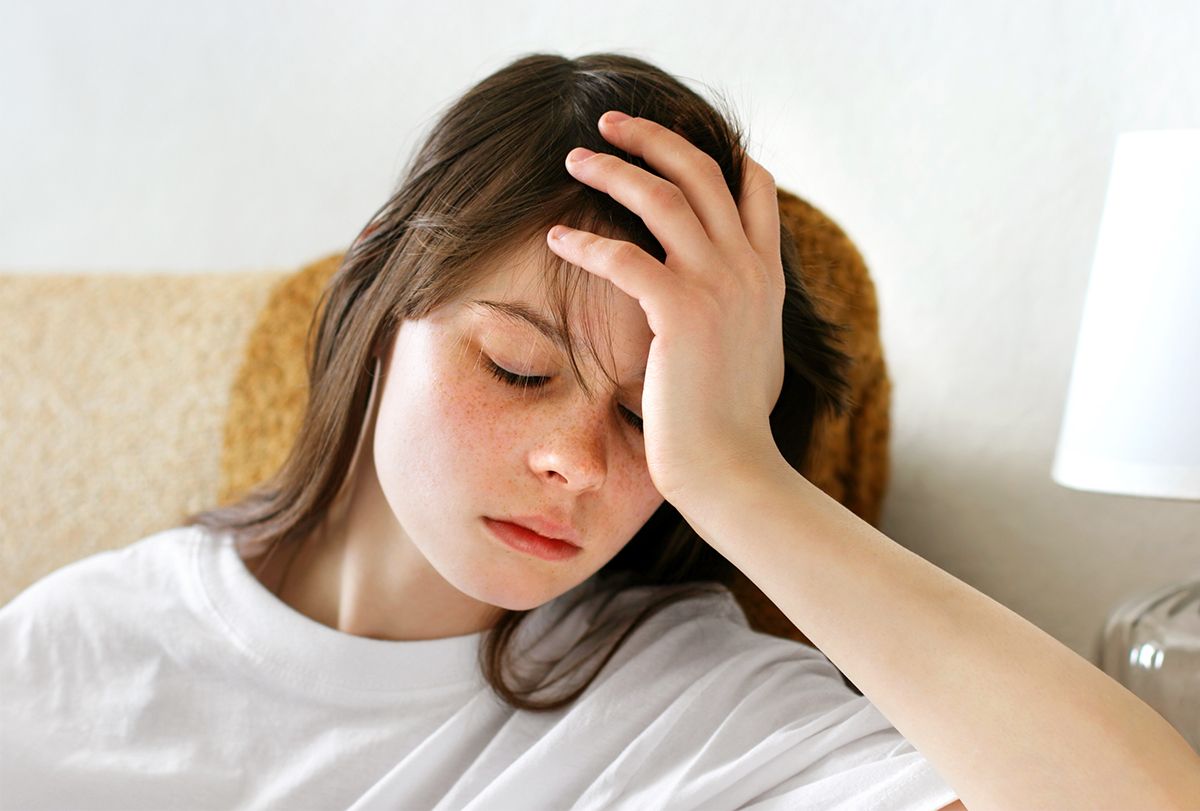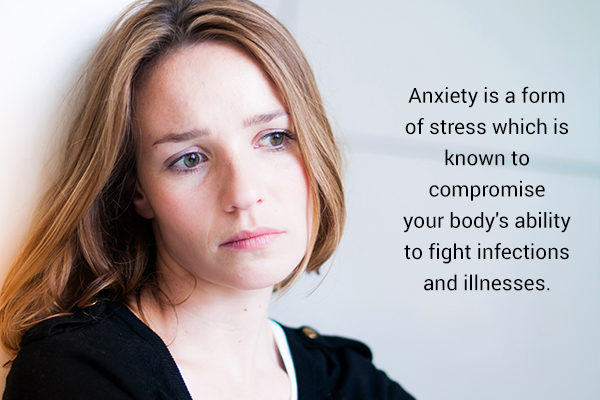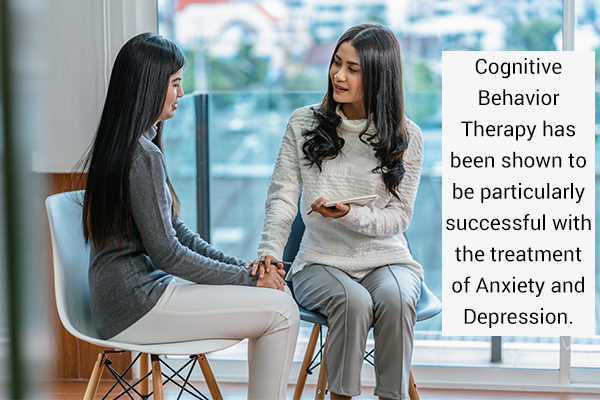In this article:
When presented with a threat, your body releases certain hormones that induce a fight, flight, or freeze response to overcome the problem.

After the threat has passed, these hormones decrease and your body returns to baseline. But this normal response can sometimes be disrupted, triggering anxiety symptoms, even when there is minimal or no threat.
Anxiety Amidst the COVID-19 Pandemic
Everybody experiences occasional anxiety, but it has become particularly heightened nowadays in view of the COVID-19-related health concerns and movement restrictions.
Several organizations have prepared resources for those experiencing an increase in feelings of anxiety at this time of the COVID-19 pandemic, whether they have a formal diagnosis or not.
Both the National Alliance on Mental Illness (1) and Mental Health America have prepared a COVID-19 resource guide. (2) The Centers for Disease Control and Prevention have also released resources for coping with stress. (3)
Types of Anxiety Disorders
Several constellations of symptoms, when put together, can carry a diagnosis of anxiety disorder. Types of anxiety disorders include:
- Generalized anxiety disorder
- Panic disorder
- Social anxiety disorder
- Obsessive-compulsive disorder
- Phobias
- Post-traumatic stress disorder
People can be anxious about a wide variety of things, such as in generalized anxiety disorder, and they can also develop very specific fears, such as a phobia. A person can experience significant symptoms of anxiety that disrupt their normal ability to function. Hence, the condition is called a disorder. (4)(5)
Physical Effects of Anxiety on the Body

Anxiety is largely perceived as a psychological phenomenon, but it can negatively impact your entire body and pave the way for a number of physical problems. (6)(7)
In addition to fanning uncontrolled mental stress, anxiety creates tension throughout the body that is stored in your tissues, inhibits your immunity, and hampers the functioning of various organ systems.
In general, anxiety can manifest in the form of the following physical symptoms:
- Breathing difficulties
- Rapid heartbeat
- Excessive sweating
- Trembling
- Increased fatigue or weakness
- Dizziness
- Choking
- Stomach ache
- Malaise or feeling sick
- Headache
- Tingling or a pins-and-needles sensation in the body
- Insomnia characterized by difficulty falling or staying asleep
- Muscle aches and tension
If your anxiety symptoms become hard to manage and interfere with your daily activities, it is best that you seek help from a doctor, counselor, or mental health expert.
Medical Treatment for Anxiety

Treatment for anxiety can take many forms, but the mainstay is therapy and/or medications for most people.
- There are many types of therapy, but cognitive-behavior therapy has been particularly successful in the treatment of anxiety and depression. (8)
- Selective serotonin reuptake inhibitors (SSRIs) are antidepressants that can also work in anxiety, although they may need to be prescribed in higher doses.
However, no medicine is without side effects. Most people experience diarrhea, constipation, nausea, headache, or lightheadedness lasting for 2–3 days.
Tips to Manage Anxiety Symptoms
Regardless of the type of anxiety disorder, the symptoms can be managed and, for some people, can resolve completely over time. Untreated disorders can lead to worsening symptoms and an increased risk of other illnesses.
If patients prefer natural or holistic approaches, they can be used alone or in combination with prescription medicines:
- Essential oils such as lavender, lemon, and chamomile, light therapy, and physical movement and exercise can be helpful. (9)(10)(11)
- For some people with an underlying medical condition, changes in the diet and nutrition may also be helpful. (12)(13)
- It is important to get sound sleep as it helps clear metabolic wastes in the brain.
- Breathing exercises, visualization, and progressive muscle relaxation can be particularly helpful for calming the body during or immediately after anxiety symptoms. (14)(15)
However, it is best to practice these techniques regularly when the body is in a relaxed state so that the brain recognizes them as what you do when you feel “healthy and normal.”
Panic Disorder
Panic disorder occurs when a person experiences anxiety or a panic “attack” that leaves them debilitated for a while.
During a panic attack, a person may experience increased heart rate, difficulty breathing, tremors, sweatiness, or a sense of fear that they may not be able to get to safety.
Although this experience can leave a person feeling as if they may die, a panic attack is not fatal unless they have another underlying medical condition.
ALSO READ: Anxiety and Panic Attacks: Causes, Treatment, and Management
Final Word
It is normal to experience anxiety in situations of stress as it prepares the body for any perceived danger. However, one may suffer from anxiety disorders, often characterized by excessive fear, which are different from general nervousness.
Anxiety disorders are largely treatable with simple self-care and certain medications. It is essential to consult a doctor if you experience heightened levels of panic, nervousness, or anxiety.
- Was this article helpful?
- YES, THANKS!NOT REALLY


